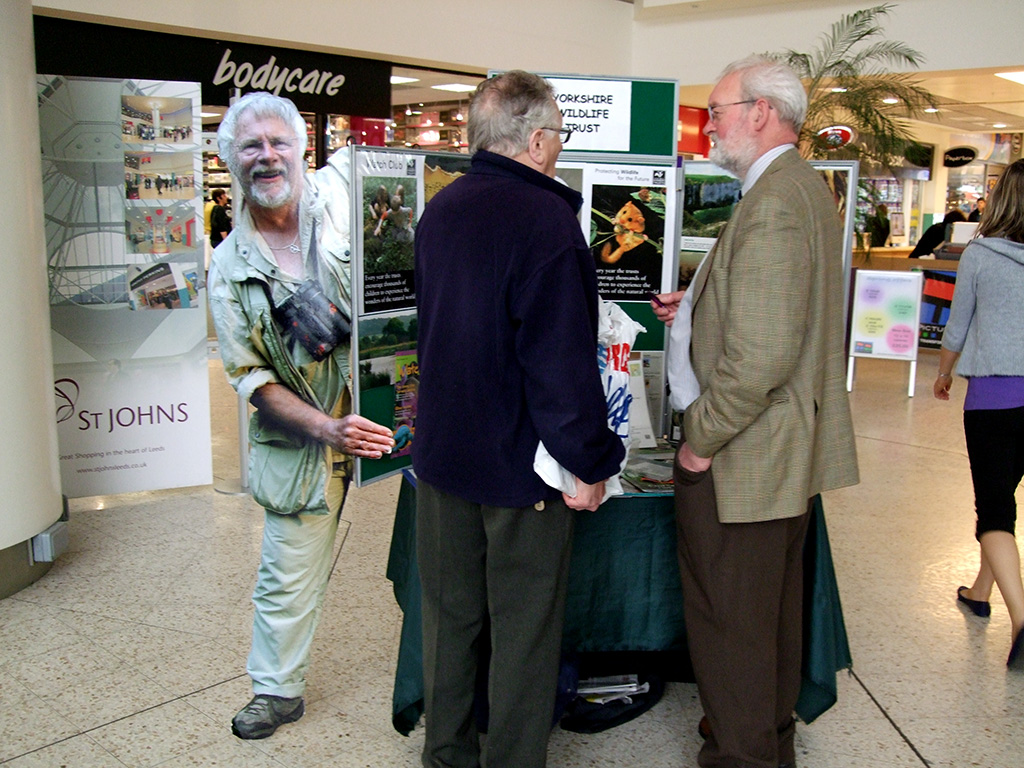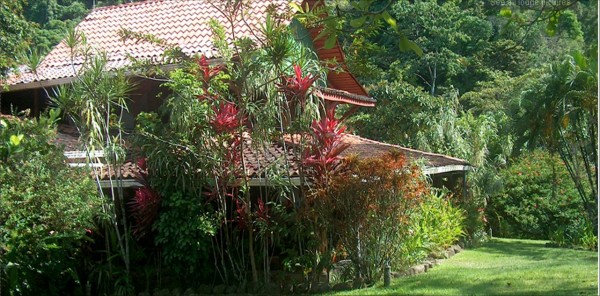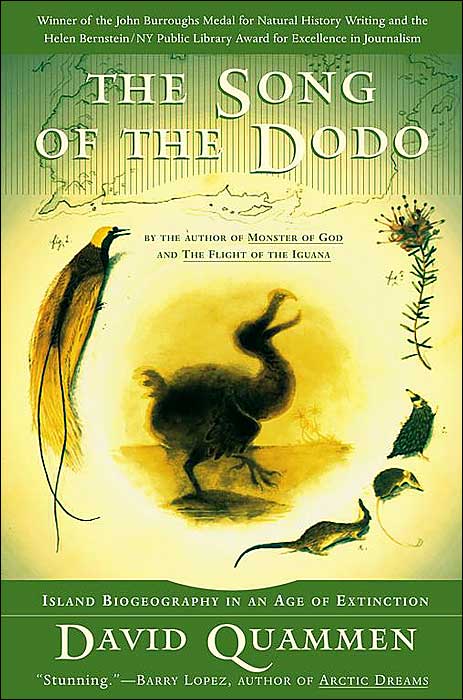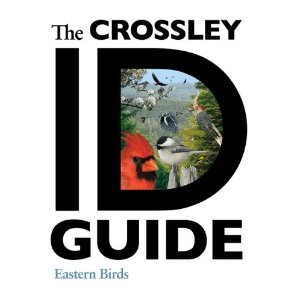British Birders – a separate subspecies?
I have only been in Britain a couple of times, and have yet to go birdwatching there (an Osprey at Birdfair doesn’t count). But the British Birdwatcher has certainly intrigued me for many years.
Never having seen them in their natural habitat, my impression of British Birdwatchers is based almost exclusively on studying them as vagrants or nomads in other habitats. Whilst living in southern Costa Rica, I was continually amazed by the frequency of incredibly well prepared British Birders that came through Tiskita Lodge: when meeting tourists who had flown in for a few days in the jungle, one could never guess how much they knew and how prepared they might be, but it was the Brits that surprised me most often: second day in Central America ever, and they had already memorized all the species that could potentially occur in the area, how to identify them, their calls, and are armed with questions about where they can find this one particular fruiting tree species and how to tell the immature of one species from the female of another. Now that was all very impressive, but the moment that got me shaking me head in amazement was one guest who had heard that there was a Panamanian hummingbird (can’t for the life of me remember what it was called) that we would see every now and again, that would mainly visit one bush near the main lodge building. This particular English gentleman was so determined to see this hummingbird that he spent an entire afternoon (6hrs!) staring at this bush – I did not see him break his concentration, I did not see him scratch his nose. He did not go to the toilet, he did not fiddle with his binoculars. I was concerned that he might not be breathing.
It was heartbreaking to see the Black-and-white Hawk start to circle over the forest in front of the lodge, signalling the end of the day, and the end of our determined birder’s hopes of picking up the hummer before he left early the next morning. I honour and admire his determination. It left me nonetheless somewhat perplexed. What level of patience and determination does it take to sit motionless in the jungle for 6hrs in the hope of seeing one species?
Something else that also really burned in to my mind when I think of British Birders was something that came up in a conversation with James Lees and Mike Weedon while we were birding in Kazakhstan a couple of years ago: the knowledge and ability of the average British birder is higher than anywhere else in the world. Whether this is true or not, I cannot begin to say, but it does seem to make sense.
Now I am sure many brighter minds than mine have looked at causality and development of the British birdwatching scene, but I’d like to hazard a guess at some of the reasons why it has turned out the way it is. If you have ever read Song of the Dodo, or anything by Robert MacArthur and E.O. Wilson, or anyone else interested in biodiversity over the last few decades, you would have heard of The Theory of Island Biogeography:
– location. a fairly large island in a good position to pick up rarities being blown out from west or east, making the chances of seeing something interesting a whole lot higher than, say, in the Alps (something most birds avoid as opposed to heading toward the island);
– time. Birdwatching has a relatively long tradition in the UK, allowing it time to grow and mature; develop well-established hierarchies, niches, more conservative voices, dissidents/punks and self-appointed noocracies;
– isolation. Being separated from continental Europe by both a little bit of water and language, British birdwatching culture could develop mostly in isolation from external trends and thoughts. In speciation, this is not only important in terms of the exchange of (genetic) information, but also for the concentration of the (genetic) information pool on the island. I’d suggest that this concentration effect has resulted in a stimulation of the learning process, of the cultivation and spread of knowledge, and the desire to want to know more. This has all, in turn, been spurred on by a competitive intensity driven to its foreseeable extreme by the fear of being labelled a “dude” and the ruling ornithological gentry (protectors of honour, holders of all wisdom and “morally and intellectually superior” aristokratia): eternal damnation for the passionate Sunday birdwatcher who got that PG Tips wrong or – potentially even worse – didn’t say anything about it because he thought he got it wrong anyway and then showed a – soon to be very p’d off – mate a month later;

Your first defence against being called out as a Dude is to look like a tramp. Photo by Alistair Thompson cc on flickr
– initial assemblage composition. Might I assume that hunting in the UK has traditionally been something more associated with the aristocratic classes, being forbidden to he general public, and in more recent history, tainted with a poor reputation; meaning that ordinary folk in the UK with an innate desire to develop a hobby/sport in the outdoors was somewhat more likely to end up in birdwatching than in hunting (with the reverse trend being seen on the continent).
Now I think this all suggests that there are some major regional factors that have influenced the divergent evolution of the British Birdwatcher and, given their unique society, communication strategies, behaviour, dress and geographical isolation, I believe there is at least cause to consider them a full and clearly distinct subspecies from other populations worldwide.





Great blogpost Dale! Two other characters that identify British Birders:
1. The have a great sence of Humour. Bill Oddie, Tom McKinney, Punkbirder, Reservoir Cats, Gyr Crakes, Drunkbirder, etc…
2. The leave lousy tips!
mmm, I wonder what sacred theory we can “blasphemously” transform to explain your two characteristics?
Fantastic post, Dale, and I’m honoured to have been included amongst such Brit luminaries (albeit in cartoon form)! Thankyou very much for the link.
Everything you say is right, and I think geography is an important factor. Living in the UK where so many birds are migrants or vagrants does tend to broaden your horizons – I grew up wanting to be able to identify White-throated Sparrows, Black-eared Wheaters and Pallas’s Warblers as much as I did Cirl Buntings and Pied Flycatchers. And Gunnar is spot-on when he mentions humour: when you live in such a damp, dark corner of the globe you do need to be able to laugh at yourself and the situations you find yourself in or you’d never go outside!
Cheers.
But what of the very small population of Irish birders? Where do we fit in? We live on an island as well, and have even fewer regular species as against the sheer amount of species which either have occurred as vagrants, or could do so.
Ireland is not part of Britain? lol!
We never were part of Britain, even when we were part of the UK…
Not even the British isles?
You were a part of UK?
Now I am confused.
More confused to remember if Norway was part of Denmark – or part of Sweden.
I know Finland was part of Sweden, but I seem to remember that Sweden at one
time was part of Denmark – and certainly that some Swedish parts were part
of Denmark at one time…
Then again I don’t think Swedish birders include any former territories in
their list – and probably don’t even keep a Scandinavia list. Certainly
Danish birders don’t include Greenland in the Danish list.
Just kidding of course…
Dale, please explain the evolution of the Irish birder for the sake of
argument. And while you are at, carry on with the Dutch, Danish, Norwegian,
Swedish and Finnish birder.
DNA tests may be needed to identify whether there are some cryptic
subspecies yet to discover.
@Harry, I have even less experience with Irish birders than British birders, but based on the other Irish folks I have come across, they are a whole lot stranger. I would put this down to a greater social isolation from the mainland. What biogeographers call the “initial condition” has strongly shaped the two birder subspecies in that the societies on (in) which they are based are somewhat – let’s call it – unique (“special”).
@Gunnar. In order to examine the variable roles of local and regional factors on assemblage composition and speciation within birders, we are going to do a whole lot more research. At the very least using catch-and-release methodology. And let’s face it, spring traps and Balchatris baited with Macdonalds (TM) “hamburgers”; and great big mist nets would also just be great fun!
Gunnar, it’s confusing. Let me simplify: Northern Ireland is part of the United Kingdom of Great Britain and Northern Ireland but not part of Britain. Or Great Britain. Never has been. There would need to be a very long bridge. Ireland is not part of Northern Ireland, although Northern Ireland is actually part of the island of Ireland geographically. Politically, however, it’s very much not, as the island is divided into Northern Ireland and The Republic of Ireland (which is independent, and not part of anything else….unless we start talking about the EU…). If…and this is a very heavily nuanced ‘if’ – Northern Ireland re-united with the Republic then Ireland might just be called Ireland (politically and geographically) but we are getting into hundreds of years of divided opinion here and the article was just about birding so probably best to move on.
Back to the story: the United Kingdom is also known as Britain, which is also known far more simply as Great Britain. Great Britain is also known as the British Isles, which also includes Anglesey, Orkney, the Isle of Wight, Jersey, Shetland….I could go on, (and I will); there are a lot of islands, but it still doesn’t include the island of Ireland. Even Greater Britain, a term I just made up, includes a whole lot of other islands from all over the world such as Tristan de Cunha, the Falklands (Las Malvinas), St Helena, the British Virgin Islands, and a huge number of traffic islands, as traffic is terribly popular in Britain, but still does not include the island of Ireland, or even the northern bit of Ireland, Northern Ireland.
The term ‘UK’ generally refers to England, Scotland, Northern Ireland and Wales. However, the only way to be 100% sure you are talking about all of those places is to use the proper denomination which is ‘the United Kingdom of Great Britain and Northern Ireland’. And however you look at it, it doesn’t include the country generally referred to as Ireland, which is officially the Republic of Ireland.
All clear now? Good, glad I could help. But hold on: Just when you’ve got this all sorted out, the Scottish Nationalist Party today (March 13th) announced that they would be seeking a mandate for a referendum to vote for/against independence from the United Kingdom in 2018. If that happens, I will have to write this all over again. Either way, Ireland will still not be part of Britain.
One of the best Blog posts I’ve read for a while, very interesting to read an outsiders perspective of British Birding!
Thanks Tim. Over the next few years I plan to spend a little more time in the UK, fitting a little bit of birding in on the side – I am intrigued to see how my impression of British birders changes as I come more in to contact with them.
How do you see British Birders?
Fascinating! It’s as Page Three as a birding post can get with all that name-dropping but illumining nonetheless! We get a lot of English birders in our part of the world – India (some of them have authored our best field guides).
Don’t forget, that all of Europe, the Americas (well, maybe not early Central America unless you really liked eating some version of spice less gallo pinto for every meal), Asia and Australasia you could break off for some decent food and wine for lunch, or brunch, or whenever. The English had no such choice. So sitting in the drizzling rain, chilled, with just a semi-waterproof anorak over a army surplus jumper and non-insulated wellies (and this is Spring/Summer) was better than the alternative, going to some local pub, if there was one near, for warm, flat beer and a cold pork pie, which was mostly chunks of lard with a bit of pig fat. And a pickled onion. Otherwise a tinned corned beef sandwich and a thermos of 6 hour old warm tea brought from home. Staring at the bush had been ingrained as a better alternative.
The British built an empire where they could practice natural history in many corners of the world. Nowadays, they may travel in a world where the English language is the most common lingua franca. So, doesn’t the idea of evolution on an island need to be combined with an idea of global exposure?
And by the way: Aren’t US birders as a whole of a comparable caliber as regards birding skills?